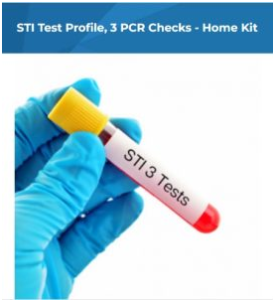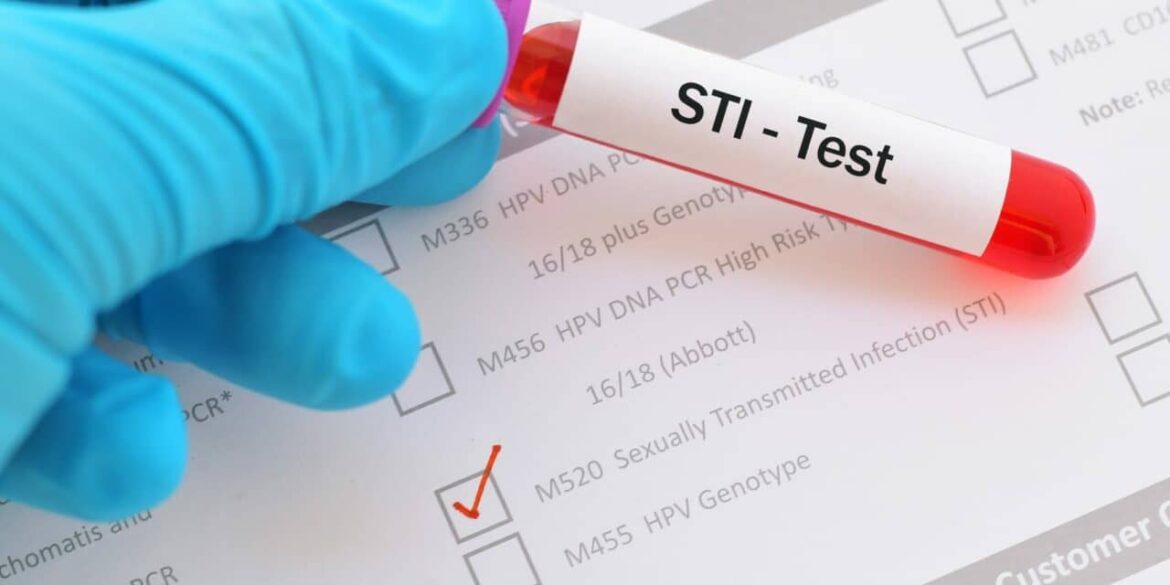Sexually transmitted infections can also severely affect individuals of all ages, including children. Therefore, these effects make it crucial to know about the risks and impacts of sexual infections on children while emphasizing the importance of protective measures to ensure their well-being. STI testing plays an important role in this. Secondly, the COVID-19 pandemic has also impacted people of all age groups, including children. It is important to understand the risks and impacts of corona on children. Discussing the necessary protective measures that can be implemented to ensure their safety, like Covid testing in London, is also necessary.
Do Children need STI Testing?
While it is uncommon for young children to develop STIs, certain circumstances can lead to their occurrence. These cases are typically attributed to specific situations such as sexual abuse, vertical transmission from an infected mother during childbirth, or exposure to infected bodily fluids. Handling these cases with sensitivity is crucial, recognizing that child sexual abuse is a serious crime and requires immediate attention from authorities.
Understanding the Risks of STIs for Children:
Children are vulnerable to STIs, and it is crucial to understand the specific risks they face to develop appropriate prevention plans. Children who experience sexual abuse are at high risk of contracting STIs. Recognizing the signs of abuse and providing a supportive environment for disclosure is essential for their protection. Engaging in sexual activity at a young age increases the likelihood of the spread of sexually transmitted infections.

The Importance of STI Monitoring for Children
Monitoring sexual infection plays a critical role in ensuring the sexual health and well-being of individuals, including children. This screening allows for the early detection of sexual infections in children, allows for prompt treatment, and prevents potential complications. By identifying sexual infection in children, monitoring helps prevent the further spread of infections to sexual partners or through vertical spread during the child’s birth. Detecting and treating sexual infections in children helps prevent long-term health issues, such as infertility or certain cancers if infections are left without treatment.
STI testing in children supports education initiatives by promoting a culture of sexual health awareness and responsible behavior. It helps in healthy discussions about safe sexual practices, consent, and the importance of regular monitoring.
Positive results for any sexual infection in children allow healthcare professionals to provide medical care, counseling, and support services for their specific needs. It can also reveal cases of sexual abuse or misuse in children. Positive results may prompt further investigations, helping protect children from harm and providing them with the necessary support and resources.
Furthermore, this screening in children aids open communication between parents, caregivers, and healthcare professionals. It creates opportunities for discussions about sexual health, consent, and healthy relationships.
How STI Testing in Children Promotes Openness and Acceptance
Monitoring and dealing with these infections in children is crucial for their physical health and for reducing stigma and shame. It helps in open discussions about sexual health, consent, and safe practices. Creating a safe space for dialogue challenges the stigma of STIs, aiding a more accepting and literate society. Furthermore, it provides:
- Opportunities for education and awareness about sexual health.
- Helping children and their caregivers understand the importance of regular checking.
- Preventive measures.
- Responsible behavior.
By preparing them with knowledge, we empower children to make informed decisions while fighting the stigma. Additionally, monitoring programs for sexual infections can actively engage in community education and awareness campaigns, fostering a broader understanding of sexual infections in children. By reaching out to schools, parents, and community organizations, we promote an inclusive dialogue that challenges stigma and gives support.
The Impacts and Risks of Covid-19 on Children:
Coronavirus has presented several risks for children, although they may generally experience milder symptoms than adults. Understanding these risks is crucial for effective prevention and management plans. Children with pre-existing medical conditions or weak immune systems face a higher risk of severe illness if infected with the virus. That is why regular covid testing in London is necessary. Identifying and prioritizing these vulnerable groups is essential for their protection. Although children are less likely to transmit the virus than adults, they can still act as carriers and spread it within their households and communities.
While severe cases are rare, some children may experience respiratory issues, fever, and gastrointestinal symptoms. Long-term effects such as “long COVID” can also affect children, emphasizing the importance of ongoing medical support. The pandemic has disturbed routines, social interactions, and educational activities, increasing stress, anxiety, and depression in children. Recognizing these mental health challenges is crucial for their development.
The Importance of Covid Testing for Children
The monitoring of coronavirus allows for the early finding of the virus in children, preventing further transmission. Children may also carry the virus even without symptoms, meaning they show no signs of illness. Checking helps identify these cases, preventing unknowing transmission to others, especially vulnerable individuals with underlying health conditions.

Covid Test London For Children
Children often come into close contact with high-risk individuals, such as grandparents or individuals with weak immune systems. We can protect these vulnerable populations by monitoring children by preventing potential transmission. Educational setting monitoring helps control spread, ensuring the safety of students, teachers, and staff. It can help identify cases promptly, allowing for effective contact tracing and necessary precautions. If a child comes positive for corona, they can receive appropriate medical care promptly. Timely diagnosis helps monitor symptoms, manage severe problems, and prevent severe illness.
Data from Covid testing in children contribute to a better understanding of the virus’s impact and inform public health measures and policies. This information aids in shaping rules for schools, childcare centers, and other community settings to protect children and mitigate the spread of the virus. This exam also gives peace of mind to parents by confirming the child’s health status. Negative results remove concerns and allow a more confident return to normal activities.
Conclusion
STI testing plays a crucial role in protecting the sexual health and well-being of children. Moreover, by promoting early reactions, normalizing conversations about sexual health, and educating children and parents, we can create a society that supports and accepts children affected by sexually transmitted infections. Additionally, Covid testing in London is vital in protecting the health of children and those around them. By finding cases without visible symptoms and following other vital steps, monitoring can help protect children’s overall health. As we navigate the ongoing pandemic, prioritizing the monitoring of corona for children remains crucial in the collective efforts to control the spread of the virus and protect the most vulnerable among us.




